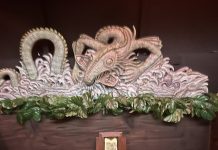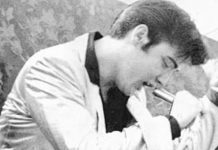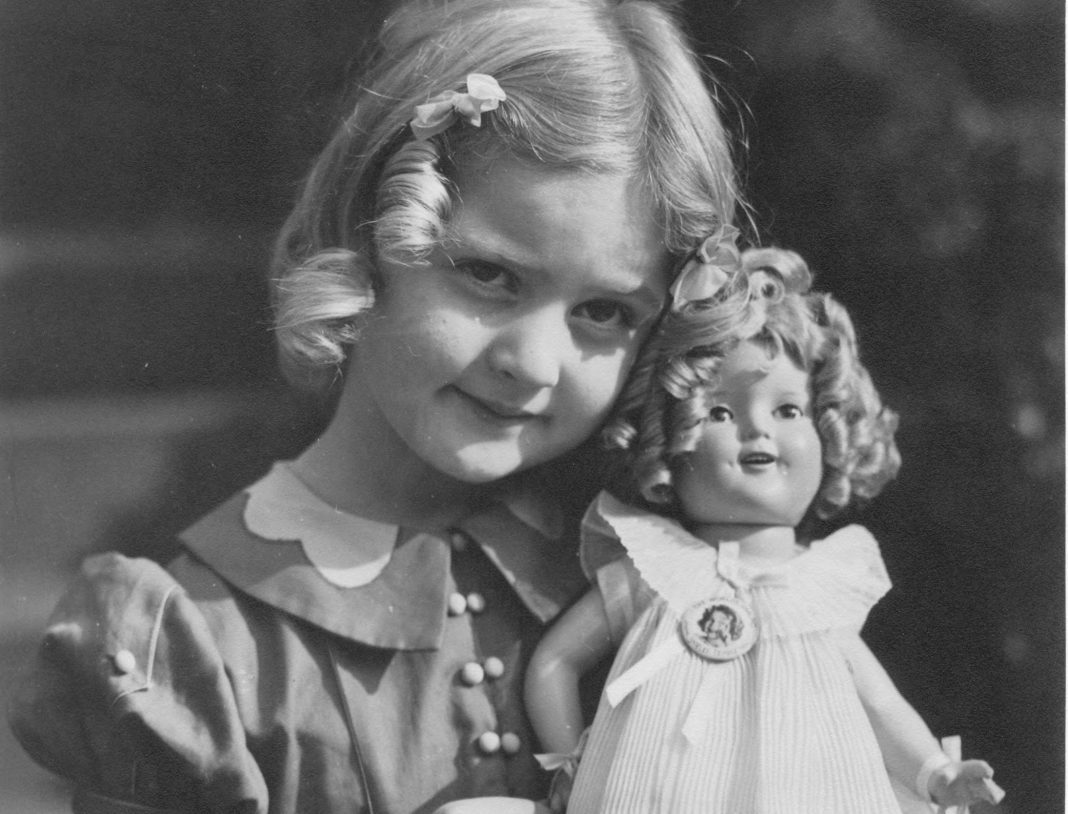Shirley Jane Temple was a popular child movie actress during the 1930s. Her youthful cheer and innocence charmed audiences. She was exactly what people wanted to lift some of the gloom of the Great Depression. From look-alike contests to doll sales, Shirley Temple proved to be a Tacoma favorite.
Tacoma’s Own Shirley Temple
Shirley had many fans, and little girls all over the country looked up to her — and wanted to look like her. On May 21, 1935, the Tacoma Daily Ledger published an article explaining how to replicate her signature ringlets at home. Naturally, curly hair or a permanent wave was a must!
Stores also sold Shirley Temple-style clothes. Rhodes Brothers, “Shirley Temple’s Tacoma Headquarters,” offered copycat nautical and party frocks, socks, shoes and her signature white felt hat. The store even held a party for her seventh birthday. Children could get a free Shirley biographical book and sign a special book the store planned to send her in Hollywood.
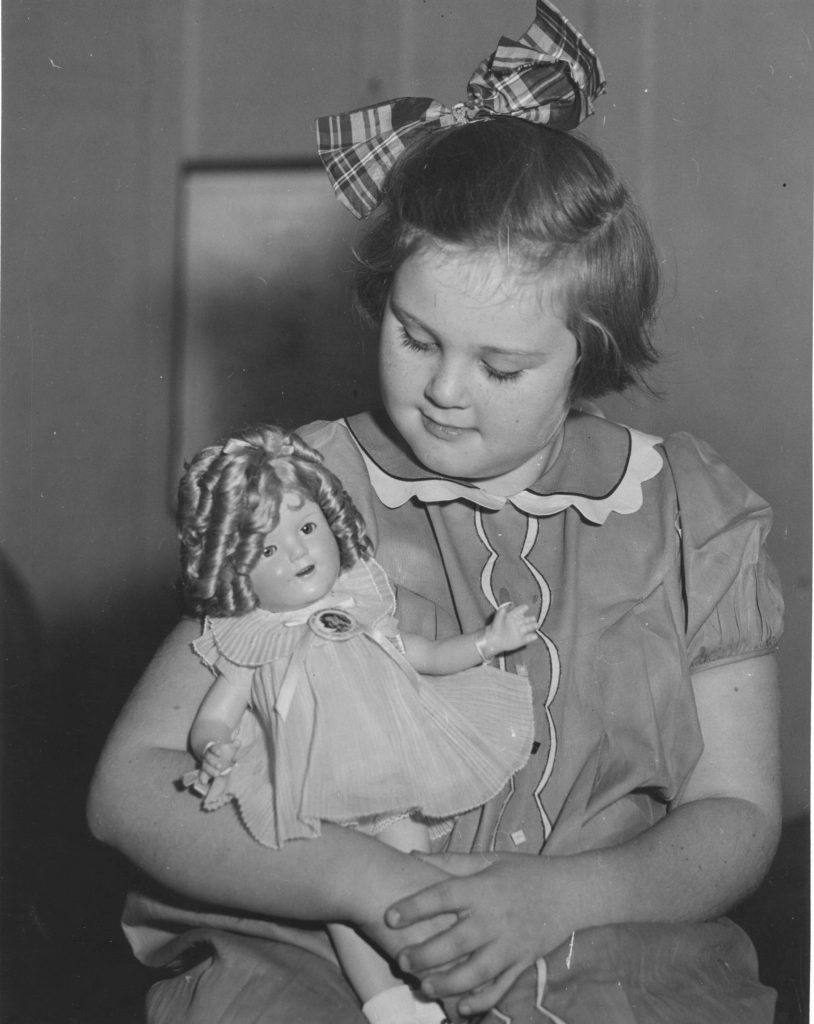
With money short, stores and theaters held events to attract customers. Rhodes hosted a party for children arranged by Miss Helen Wroth in March 1936. Two girls won Shirley Temple dresses. Another 25 children won tickets to see “The Little Colonel” movie at the Roxy Theater (now Pantages Theater). Entrants had to turn in a picture of Shirley they had clipped out of the Tacoma News Tribune and colored.
At the event, 12 girls were selected as candidates for a Shirley Temple look-alike contest. Two weeks later, many had to be turned away from the packed Roxy Theater as Marjie-Jay Miller was crowned “Tacoma’s Own Shirley Temple” at a Shirley Temple fashion show with 20 child models. The first 1,000 attendees could receive a free signed photo of Shirley Temple. Miller was declared to be Shirley’s twin. Miller later majored in radio and drama and became a movie actress under the name Marjie Millar. She returned to Tacoma to direct Lewis Harter’s Studios Juvenile Theater.
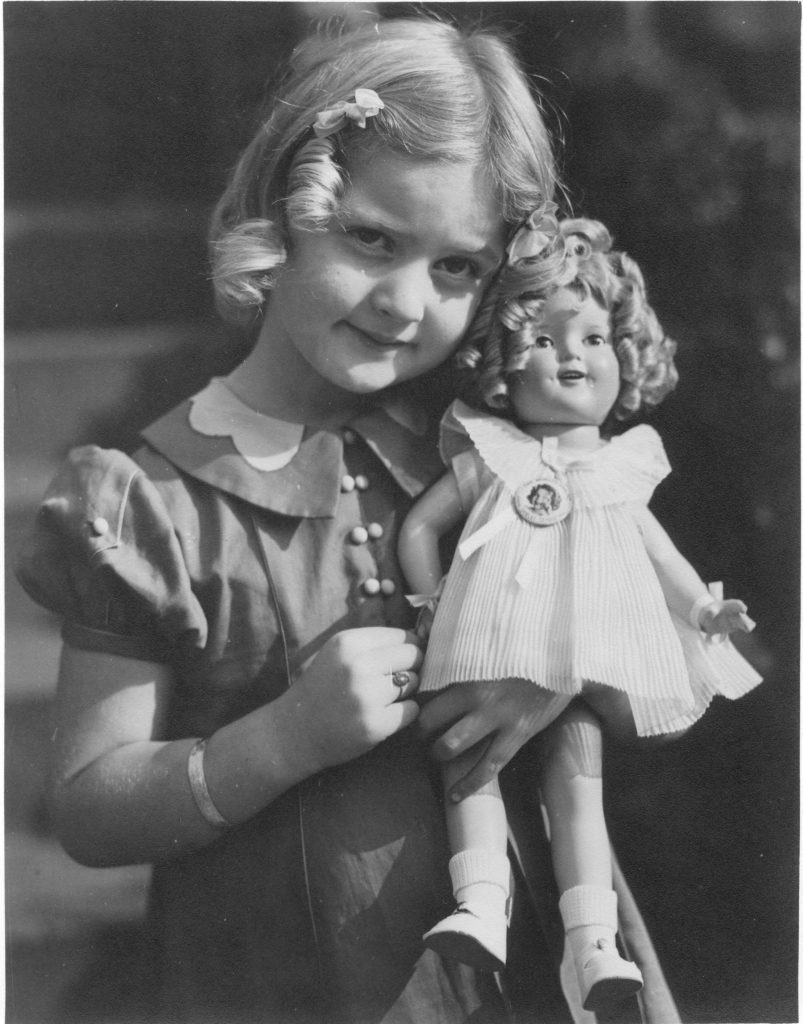
Shirley Temple Toys
Shirley Temple’s fame spawned a toy empire. Her doll was the must-have gift of the 1930s.
“Get her now and love her forever,” urged a Fisher’s holiday ad for 1935. The first officially licensed Shirley Temple dolls were made in 1934 by Ideal Toys and continued production until 1939. They were available at all local department stores. Prices ranged from $2.75 for the 11-inch version to $11.95 for a 27-inch doll, which was expensive at the time. Specially designed doll clothes, made to look like her movie costumes, were also expensive. In 1939 a Cinderella doll’s dress with a matching girl’s dress cost $1.98 at People’s.
For Christmas 1935, local reporter Stuart Welch praised the dolls as perfect for older girls who were tired of baby dolls. “The Shirley Temple dolls look just like Shirley Temple,” he wrote, “And would be fine for little girls in families that don’t go to the movies too often.” The doll remained so popular the following year Welch joked, “Mickey Mouse, Donald Duck and Shirley Temple [are] elbowing old Saint Nick nearly out of the picture.” While mothers preferred buying baby dolls made to look like the famous Dionne quintuplets, he observed that their older daughters wanted Shirley.
In December 1936, Rhodes even held a Santa’s Musical Revue for children. The highlight of the performance was when Miss Reitha Gehri’s class made Shirley Temple and other dolls perform.
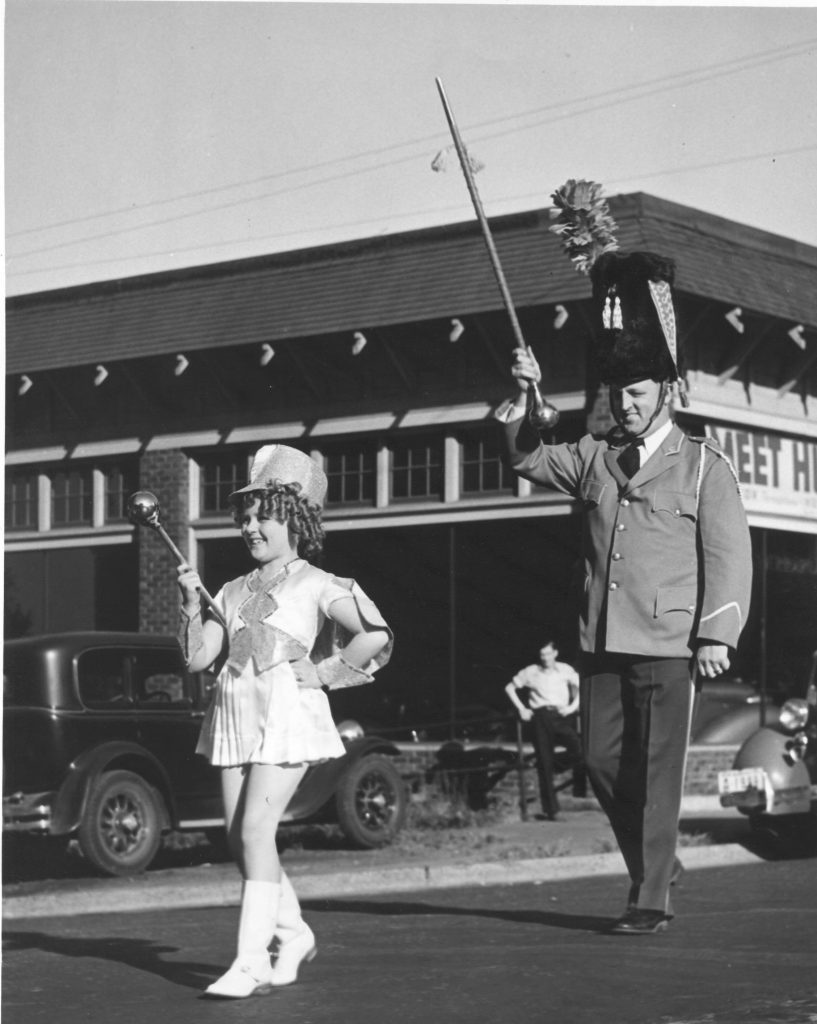
Movie Ticket and Doll Contest
Movie theaters held events to bring in customers. In 1935, Hamrick’s Music Box Theater organized a jingle contest. From December 25 to 31, they published a poem a day in the Tacoma News Tribune. Contestants completed the last lines with rhymes and mailed or delivered their entries to the contest editor’s desk at the theater by noon on January 2. Boys were invited to participate, but all the winners were female.
The poems were a bit silly. “A ‘Dollie,'” read one poem, “who thrills young and old/Is Shirley Temple, who, I am told/loves sister and brother/Minds father and mother.” In another, the amateur poet hails Shirley as “A winsome young lady from Screenland,/Admired from Capetown to Greenland,/Her first name is Shirley/With teeth white and pearly.”
Entries came from as far away as Aberdeen, Mt. Vernon, and Buckley. The poems arrived in all forms, from homemade books to scribblings on wrapping paper. Some included images of Shirley on every page. Boyd Rozen, the theater manager, joked that he gave himself a headache working into the night to pick the best 25 out of hundreds of entries.
The top winner, 11-year-old Irene Cromwell, won a Shirley Temple doll she decided to name “Shirley.” The next 14 winners won two tickets to see Shirley’s latest picture, “The Littlest Rebel,” at the Music Box. The following ten winners were each awarded a single movie ticket.
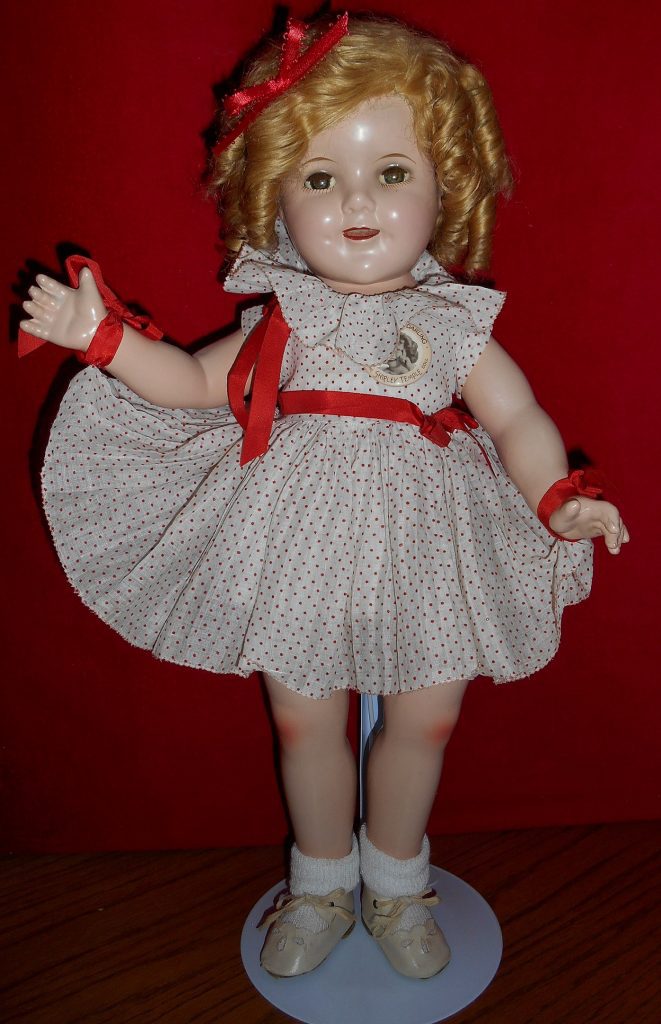
Shirley’s Legacy
Shirley’s movie career faded as she grew up, and she retired from film at 22. Shirley Temple Black turned to diplomatic work, serving as an American delegate to the United Nations and later as ambassador to Ghana and Czechoslovakia. She died in 2014. Shirley Temple’s films have become classics, and her dolls are collector items as people cherish memories of how she had helped cheer American hearts when the country needed it the most.














